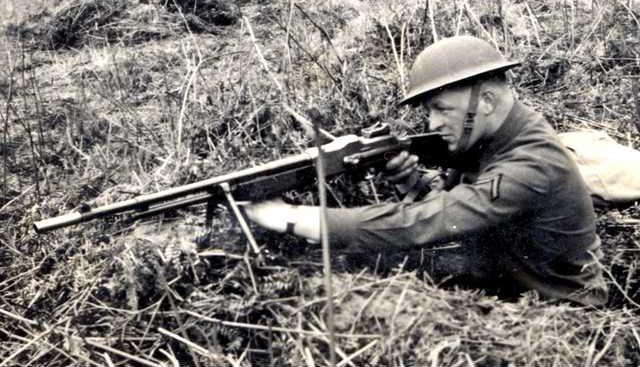During World War II, there were many jobs to do as the nation mobilized for war. A fact often forgotten was that this country began to ready for the impending war even before Pearl Harbor was attacked in December of 1941.
Carl Edge was one of the first Grant County residents called up for the war effort, leaving in the first draft in March of 1941. Carl, the middle of three boys growing up in Ellenboro, was shipped off to the west coast, where he began to train on 12-inch and 16-inch guns, firing on targets off the coast of Pugent Sound.
Edge was placed into the Coast Artillery, the men who watched our borders on either ocean, making sure the United States was not invaded. Edge recalled that being a member of the Coast Artillery was a non-stop job – a group of five soldiers would be stationed at an outpost for a week at a time, the five rotating shifts to watch the sea at all times. A limited break of 12 hours was all the group got before rotating back onto a gun. “I had time to shower and shave, and that was about it,” Edge quipped.
While it seemed like a foregone conclusion that the U.S. and Japan would battle, those days before the war still meant that they were a trading partner. Edge said that the trade was all one way, with the Japanese purchasing tons of scrap metal from America. “We were selling them metal all summer long,” Edge recalled. That practice ended in late summer 1941, and when he took a furlough in September, Edge said that he predicted that the war was inevitable.
“I was pretty sure something was going to happen soon,” he noted.
Then the war came to America. Carl recalls that people were on edge in this country, worried about enemies making their way into the country. There was paranoia that Japanese Americans were photographing position to send over the pond. While on duty, Edge said that he believed he spotted a periscope in the water, but never fired.
In January 1945, with America feeling confident that they had the Axis on the run, the Coast Artillery was dramatically reduced, and 75 percent of Carl’s unit was sent to Texas for infantry training. Although he had been in the service since before war was declared, Carl never collected the 50 points needed to get discharged from the military. By April, Carl had landed in France and was inching towards the front lines when Germany surrendered. This placed Carl on stockade duty, watching prisoners.
That duty, too, ended, and Carl was on his way back to the states. Eventually, Edge was to ship off for the Pacific, but two days before he was to leave, Japan surrendered.
“You might say I was one of the lucky ones.”





